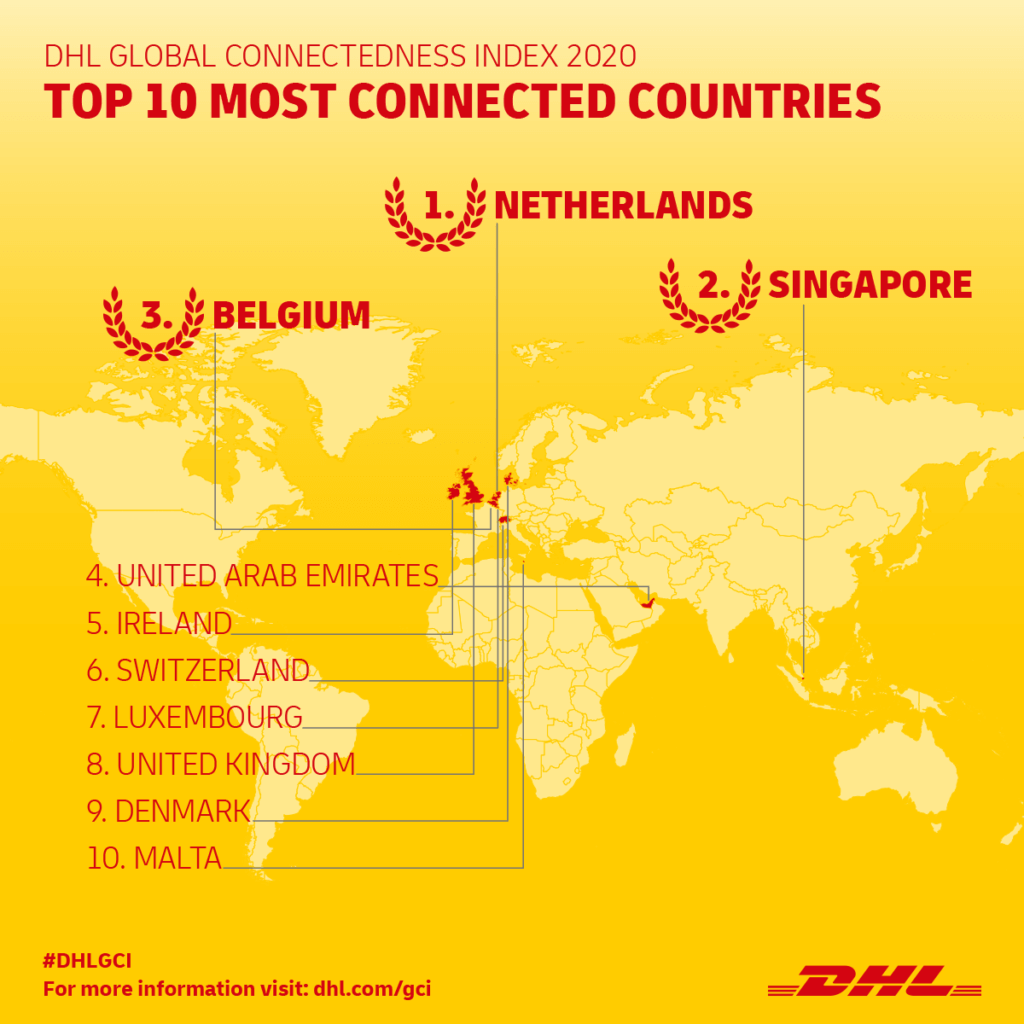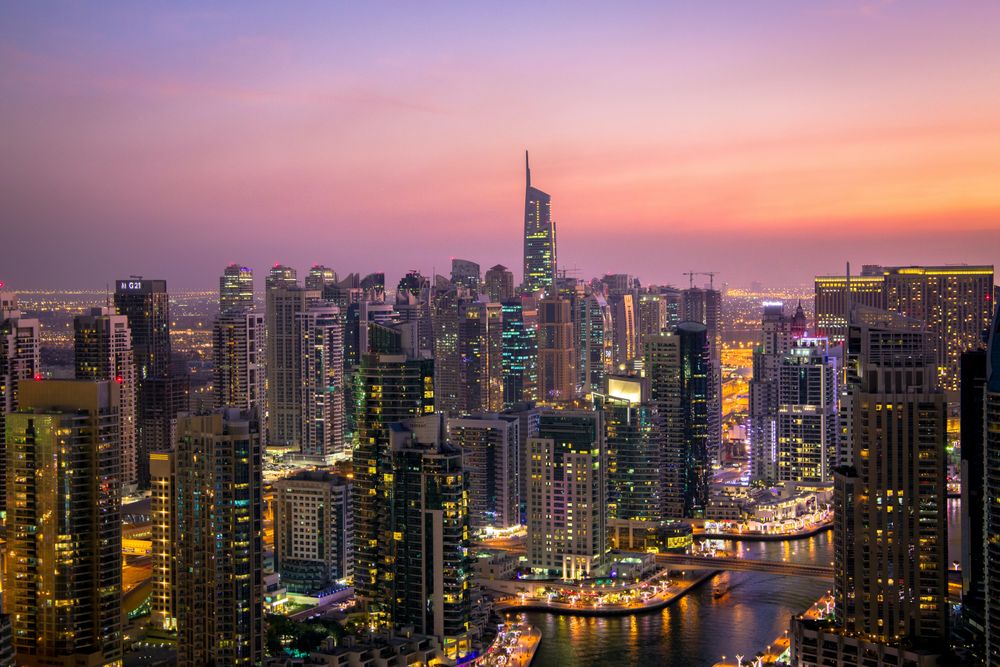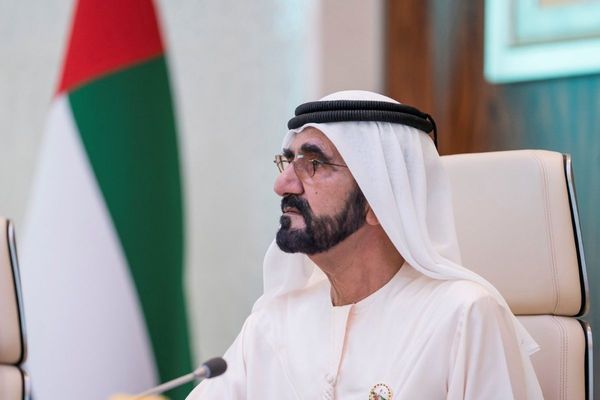The UAE has emerged as one of the top five most globally connected countries in the world according to the DHL Global Connectedness Index 2020 released today. Now in its seventh edition, the report compiled in collaboration with DHL and the NYU Stern School of Business provides a comprehensive assessment of globalization during the COVID-19 pandemic.
It tracks international flows of trade, capital, information and people across 169 countries and territories, finding that the UAE, along with the Netherlands, Singapore, Belgium and Ireland, lead the global ranks.
After holding steady in 2019, current forecasts imply that the index will fall significantly in 2020 due to the distancing effects of COVID-19 on societies, such as closed borders, travel bans and grounded passenger airlines. Nonetheless the pandemic is unlikely to send the world’s overall level of connectedness below where it stood during the 2008 – 09 global financial crisis. Trade and capital flows have already started to recover and international data flows surged during the spreading pandemic as in-person contact went into the online world, boosting international internet traffic, phone calls and e-commerce.

John Pearson, CEO of DHL Express said:
"The current crisis has shown how indispensable international connections are for maintaining the global economy, securing people's livelihoods and helping companies strengthen their trading levels. Connected supply chains and logistics networks play an essential role in keeping the world running and stabilising globalisation especially at a time of a crisis that spans our globe. This reminds us of the need to stay prepared for any challenge. The recent vaccine breakthrough has put a spotlight on the systemic importance of fast and secure medical logistics dependent on a worldwide interconnected network that effectively ensures international distribution."
Nour Suliman, CEO of DHL Express MENA said:
"The UAE has remained resilient to the global pandemic, prompted by the government’s vigilant efforts to contain the spread very early on and minimise the country’s health, safety and economic impact. The UAE’s robust logistics capabilities and transport infrastructure enabled the country to sustain open supply chains and trade links, which ensured that local access to COVID-19 tests and the availability of Personal Protective Equipment , PPE, for nationals and residents was one of the highest in the world."
While COVID-19 has disrupted business and life around the world, it has not severed the fundamental links that connect nations.
GCI lead author Steven A. Altman, Senior Research Scholar and Director of the DHL Initiative on Globalisation at the NYU Stern School of Business comments:
"This report shows that globalisation did not collapse in 2020, but that the pandemic did transform – at least temporarily – how countries connect. It also demonstrates both the dangers of a world where critical linkages break down and the urgent need for more effective cooperation in the face of global challenges. Stronger global connectedness could accelerate the world’s recovery from the COVID-19 pandemic, as countries that connect more to international flows tend to enjoy faster economic growth."
Predictably, lockdowns and travel bans to curb the spread of the virus have led to an unprecedented collapse of people flows in 2020. The number of people traveling to foreign countries is on track to fall 70% in 2020, according to the latest UN forecast. International tourism may not return to its pre-pandemic level until 2023. In contrast, trade, capital, and information flows have held up surprisingly well. International trade has rebounded strongly after a sharp plunge at the onset of the pandemic and remains a vital backbone for economies worldwide.
Capital flows were hit harder. Foreign direct investment, FDI, flows, which reflect companies buying, building or reinvesting in operations abroad, could fall 30-40% this year, as also projected by the UN. However, strong policy responses by governments and central banks have helped to stabilize markets. Digital information flows have surged as the pandemic has sent work, play and education online. People and companies rushed to stay connected digitally, driving double-digit increases in global internet traffic.
Europe tops the ranking with the most globally connected countries, while Southeast Asian nations punch above their weight The DHL Global Connectedness Index employs more than 3.5 million data points to track the globalisation of 169 countries over the period from 2001 to 2019. It measures each country’s global connectedness based both on the size of its international flows relative to the size of its domestic economy (‘depth’) and the extent to which its international flows are distributed globally or more narrowly focused (‘breadth’).
News Source: https://www.wam.ae/en/details/1395302893784









